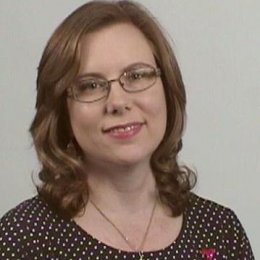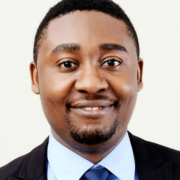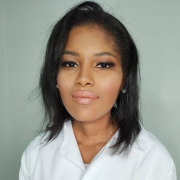How did you become interested in pursuing a PhD in the field of Hypertension?
I had been a family nurse practitioner for several years when I decided to pursue a PhD. I was teaching at the University of Arkansas for Medical Sciences College of Nursing and volunteering at a free, faith-based, primary care clinic. The African American patients seen at the free clinic had much worse outcomes with hypertension treatment than the white patients even though clinic visits, laboratory work, and medications were all provided free of charge. I wanted to understand reasons behind the disparity in hypertension treatment outcomes for African Americans and identify ways to eliminate that disparity. My dissertation title was: “Factors Affecting Hypertension Treatment Adherence among African Americans.”
Describe the research that is carried out in your laboratory.
I have been fortunate enough to work with two research teams. During school I worked as a research assistant to Dr. Jean McSweeney on her National Institutes of Health (NIH)-funded R01 study of African American and white women at risk for cardiovascular disease. We telephoned women every 3 months for 2 years to assess symptoms women had as they developed heart disease. I am currently working with Dr. Karen Yeary and her team in the Arkansas Delta using community-based participatory research techniques to improve the health of that population, also an NIH-funded study. The community identified hypertension as the area in which they wanted to work and we are developing interventions to improve hypertension outcomes for that population.
What do you consider to be your substantial scientific contribution so far (provide Pubmed PMID if possible)?
I am very excited about the findings from my dissertation study. I identified perceptions of hypertension treatment adherence among African Americans and these findings can be used to develop more effective interventions for them. As part of the study I also examined the feasibility of pedigree development and assessed perceptions of participating in a genetic research study. Manuscripts based on these findings are under review. I have presented these findings at several scientific conferences including the American Heart Association (AHA) Scientific Sessions, the International Society of Nurses in Genetics annual conference, the Southern Nursing Research Society annual conference, and others. I have also served as a coauthor on five manuscripts with my mentor, Dr. Jean McSweeney (PMID: 242231895; 22770599; 22757737; 21477222; 20077981).
Describe your experience in reviewing manuscript for peer reviewed journals and abstracts for eBooks.
I have been a reviewer for the Journal of the American Academy of Nurse Practitioners and on an eBook for Bentham Science Publishers. I feel it is my duty to give back to the scientific community and I have learned from serving as a reviewer. It is a good way to become familiar with the latest information in the field.
What is your favourite manuscript from a lab other than your own (provide Pubmed PMID if possible)?
A recent manuscript that comes to mind is one by Ogedegbe et al. (PMID 24657991). This was a randomized clinical trial that tested a multicomponent intervention to improve hypertension outcomes in African Americans. Even though the study did not demonstrate improvement in outcomes, it highlights the need to tailor interventions to this population.
What facilities are essential for your research?
I work with communities so I must have access to the community, either through clinics or other venues such as churches, senior centers, or community centers. I must also have a computer and statistical analysis software.
Describe your unforgettable (proudest) moment in science, and the most challenging situation that you have had to overcome (lessons learnt) so far?
My proudest moment was when I received pre-doctoral funding through NIH/NINR (No. 1-F31-NR012347). My most important lesson learned is to never give up, no matter how many revisions are necessary! This goes for manuscripts and grant applications.
What upcoming conferences will you be attending, and what is the furthest distance that you have traveled for a conference?
I will be attending AHA Scientific Sessions in Chicago, IL; the International Society of Nurses in Genetics annual conference in Scottsdale, AZ; and the Southern Nursing Research Society annual conference in Tampa, FL. The furthest I have gone to attend a conference was to Washington D.C., which is just over 1,000 miles from me.
How did you learn about ISH/NIN and its activities?
I learned about ISH/NIN through a colleague I met while attending AHA Scientific Sessions. I was excited to learn that there was an international society of scientists with an interest in hypertension and sent my application to join soon after.
What are your future career plans?
I plan to apply for post-doctoral training through AHA and NIH to further prepare me to become an independent investigator.
Are you involved in other scientific or career associations? If yes, how is it helping in your career advancements?
Yes, I am a member of several professional organizations including AHA, the International Society of Nurses in Genetics, the Preventive Cardiovascular Nurses Association, and the Southern Nursing Research Society. I serve on the Membership Committee for the International Society of Nurses in Genetics and was the student representative in 2013 for the Southern Nursing Research Society, which is an elected board appointment. Service in these organizations has helped me grow professionally. Skills learned in these roles include abstract review, conference planning, newsletter publication, and leadership, just to name a few. I have also developed relationships with other scientists from all over the world through these service activities.
What are your scientific goals? Advise for talented emerging scientists?
The long-term goal of my research is to improve cardiovascular outcomes for African Americans because that is my passion. My advice is to decide what you are passionate about and make that your life’s work because only then will the work be worthwhile.





















